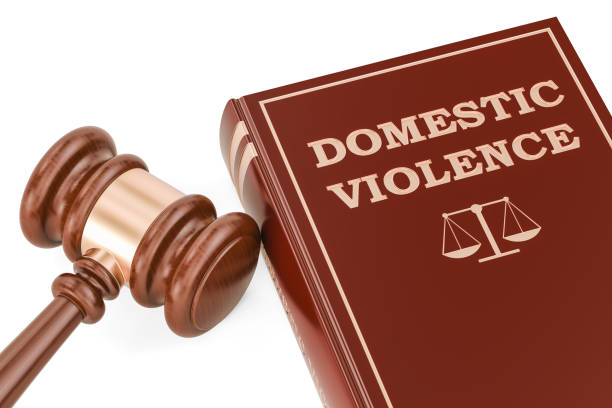Domestic violence NSW (New South Wales) is more prevalent than you think.
Moreover, domestic violence NSW includes other related incidents such as:
- Murder
- Assault:
- Grievous bodily harm
- Actual bodily harm
- Common assault
- Intimidation, stalking & harassment
- Breached apprehended violence order (AVO)
According to the NSW Bureau of Crime Statistics and Research (BOCSAR), the term ‘domestic violence’ also includes those incidents based on the relationship between victim and offender including current and ex-intimate partners, family members, and other domestic relationships such as household members, carers and ex-partner of current partner.
Among these domestic violence-related incidents, assault has the highest number of reported cases (36,072) for 2023.
This high number indicates that assault can escalate within domestic violence situations, often starting with threats or a single incident.
READ: Domestic Violence Family Law Act
Domestic Violence NSW: The Government’s Initiatives
The NSW government tackles this matter (DV) and has developed various policies and legislation encompassing prevention, victim support services, perpetrator accountability, and a streamlined system for victims. Let us go through some of these policies one by one:
Crimes (Domestic and Personal Violence) Act 2007
This legislation aims to realise the following goals of NSW’s government:
- Ensure the safety and protection of all persons, including children, who are experiencing domestic violence or witnessing domestic violence,
- Reduce and prevent violence by a person against another person where a domestic relationship exists between those persons,
- Enact provisions that are consistent with certain principles underlying the Declaration on the Elimination of Violence against Women, and
- Enact provisions that are consistent with the United Nations Convention on the Rights of the Child.
Through this Act, the Parliament gives recognition that this act is unacceptable and stringent legislation must take effect to eliminate it. Moreover, this law aims to protect those who are in a vulnerable position, such as children who are exposed to domestic violence as victims or witnesses.
How Do the Police Respond to DV Reports?
All reports will be investigated by the police. NSW Police Officers aim to combat this crime by every legal measure possible, including:
- evacuating criminals from the victim-survivor’s area (the safety of the victim-survivor is a top concern)
- obtaining an Apprehended Domestic Violence Order (ADVO) for victims and survivors, as well as for any children who are living or
- looking into ADVO breaches
- creating strategies for dealing with repeat offenders

The Plans and Policies
A variety of laws and initiatives have been put in place by the NSW government to address family and domestic violence in the state. Additionally, a comprehensive national framework for DFV policy is maintained by the Commonwealth Government.
NSW laws and initiatives combat domestic violence; a national framework is overseen by the Commonwealth Government.
The Department of Communities and Justice (DCJ) and NSW Health are the primary NSW Government departments in charge of responding to domestic and family violence (DFV).
DCJ funds programs across NSW aiding DFV victims in finding safety and rebuilding their lives.
Here’s a list of NSW’s policies and plans related to DV:
- NSW Women’s Strategy
- Aboriginal and Torres Strait Islander First Action Plan 2023-2026
- NSW Sexual Violence Plan 2022-2027
- NSW Domestic and Family Violence Plan 2022-2027
- NSW Health Strategy for Preventing and Responding to Domestic and Family Violence, 2021-2026
- The National Plan to Reduce Violence against Women and their Children 2022 – 2032
Overview of NSW’s DV Policies
To provide an overview of these plans and policies on domestic violence NSW, please refer to the table below:
| Plan/Policy | What is it? |
| NSW Women’s Strategy | The NSW Women’s Strategy lays out the suggested response, prioritises issues affecting women throughout the state, and creates a government-wide strategy to enhance the lives of women and girls in NSW. |
| Aboriginal and Torres Strait Islander First Action Plan 2023-2026 | This Action Plan aims to guarantee that all Aboriginal and Torres Strait Islander women, children, families, and communities are safe and free from family, domestic, and sexual violence. Thus, this plan supports the National Plan to End Violence against Women and Children 2022–2032, with a focus on achieving Closing the Gap target 13. |
| NSW Sexual Violence Plan 2022-2027 | In order to create a coordinated framework to direct a group effort to eradicate domestic, family, and sexual violence, the NSW Sexual Violence Plan collaborates with the National Plan NSW Sexual Violence Plan. |
| NSW Health Strategy for Preventing and Responding to Domestic and Family Violence, 2021-2026 | Enhancing the public health system’s capacity to prevent and respond to domestic and family violence is of utmost importance. That’s why NSW Health has developed a strategy for doing so that will focus its actions over the next five years. This strategy is called the NSW Health Strategy for Preventing and Responding to Domestic and Family Violence 2021–2026. |
| NSW Domestic and Family Violence Plan 2022-2027 | To give a coordinated framework to direct a group effort to end sexual violence, the NSW Sexual Violence Plan collaborates with the NSW Domestic and Family Violence Plan. |
| The National Plan to Reduce Violence against Women and their Children 2022-2032 | The main strategy used by the Commonwealth Government to lower DFV and sexual assault is called the National Plan. Its goal is to give the Commonwealth, State, and Territory governments a unified platform for action. |

Secure Legal Protection from JB Solicitors
Securing legal protection from immediate danger should be your priority when it comes to domestic violence NSW cases. Our competent lawyers at JB Solicitors can help you secure an Apprehended Domestic Violence Order (ADVO). This is a legal instrument that protects you from your abuser.
Contact us today for inquiries.
You can also contact the NSW domestic violence line and victims services line for free (1800 656 463). They are available 24 hours, 7 days a week.
You can contact Link2home, a hotline for homeless or at-risk individuals, for information and referrals.
